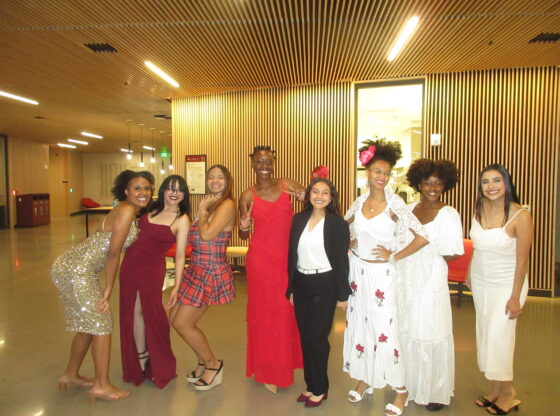Last Thursday, Media, Film and Journalism Studies (MFJS) Visiting Professor Laura Frank delivered the 2025 Wolzien Lecture to the attendees of Craig Hall. The lecture was titled “Local Journalism, Higher Education & the Future of Democracy.”
Beginning the event was Derigan Silver, chair of the MFJS Department, stating, “When journalism is censored and manipulated by those in power, it is a threat to the democracy that the United States was founded on.”
Amidst the misinformation that has plagued the media and fostered a growing distrust among Americans, only 31% feel confident in the news reported by mainstream media today. Silver then posed a question to the crowd.
“What can and should we do to protect both journalism and democracy?”
Frank, the Wolzien Visiting Professor of the Practice, believes that to build a stronger democracy, the nation first must develop stronger news. It’s a sentiment she’s held as a founder of COLab, a non-profit working with over 175 news outlets in an effort to strengthen local journalism.
“We have a window of opportunity at the local level,” Frank said, “where neighbors can still talk to each other, and where three out of four people still trust their local news organization.”
The fight for democracy is a hefty burden placed upon these newsrooms, one exacerbated by an onslaught of other challenges — something Frank gave us an inside perspective on through the newsrooms of CO.
“The average newsroom in Colorado has 2.6 people producing content, and on the business side they have 1.4,” Frank said. “Pretty often that 0.6 and 0.4 are one in the same person.”
Studies show that newsrooms across Colorado are understaffed, filled with underpaid and overworked employees. Amidst these conditions, it’s difficult to expect local journalists to bear the burden of strengthening democracy, especially while facing what Frank calls the “fried and frozen dilemma,” comparing it to feeling burnt out.
Frank offered a solution to the problem, a new initiative from COLab called News OpNet. It was created to give newsrooms the opportunity to collaborate with classrooms, boardrooms and a group called the Senior Core of Retired Executives. With this additional support, local newsrooms can lighten their workload and foster a multigenerational team of individuals whose skills span a wide range of disciplines.
Frank said the initiative will help local news make an impact, and “begin to help them make some space to innovate and break through that fried and frozen dilemma.”
The University of Denver has now become one of the 12 universities within CO to join News OpNet. Frank will teach two classes within MFJS and one class open to all majors come Spring Quarter where students will be able to learn about and support local news organizations. These classes will be open to all majors at DU and will provide students with opportunities to help support democracy come spring.











